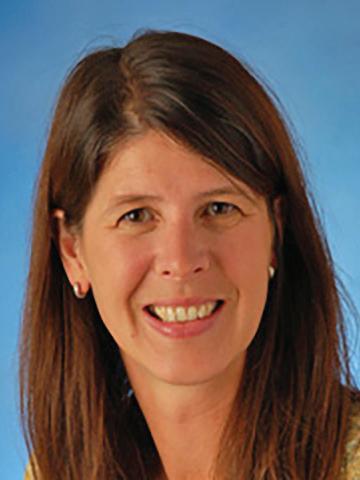
5 minute read
CALIFORNIA LACKS BLACK DOCTORS. HERE’S HOW THE STATE CAN ADD MORE.
I can still remember one of the first times that I helped treat a Black patient.
I was on my OB-GYN rotation during my clinical year at UCSF School of Medicine, and I did what any other health provider would do. I tried to make the patient feel comfortable. I asked her questions and listened closely to her responses. It felt like a normal conversation where I tried to gather information and provide health advice in equal measure.
Advertisement
But as I was leaving the clinic that day, wearing my white coat, a Black woman from the office ran after me to relay how proud she was—and how important it was for her to see someone like me learning how to become a doctor.
It should come as no surprise that Black Californians want there to be more Black providers in our health system. Black doctors have been few and far between in California, making up around 3% of the state’s total physicians for decades.
What’s becoming clearer with each passing year, though, is the cost of this lack of representation. A recent study from the California Health Care Foundation found that one in three Black people in California say they’ve been treated unfairly by a health care provider because of their race or ethnicity. One in four Black Californians have avoided seeking care altogether because they felt they would be disrespected.
Black patients have the same basic expectations of the health care system as everyone else, the foundation survey found. They want providers who listen to them (98%), spend time answering their questions (97%), and discuss and personalize their health goals (93%).
Black Californians also agree on an obvious way to make the health care system work better: 80% say it is important to increase the number of Black doctors, nurses and other health care providers.
But as the old saying goes, you can’t be what you can’t see.
A UCLA study last year found that the nationwide share of doctors who are Black men has remained basically the same since 1940. The question remains how do we change these abysmal numbers?
As a Black student at one of California’s most selective medical schools, I am the exception that proves the rule. Both of my parents were health professionals in Mississippi. I chose UCSF because I wanted to study at a school committed to cultivating a diverse student body and retaining and supporting Black students.
Wynton Sims, MPH
Nonetheless, it still took six months of clinical rotations before I worked under a Black physician. That was the first time I experienced that essential feeling of building a professional relationship with a person who looks like me, who is interested in what I hope to achieve, and who is deeply invested in my success.
As I continue to work in clinics and learn my craft, I think every student, patient and provider is looking for the opportunity to see and to be seen. It fosters genuine connections and real exchanges of information that are at the heart of health care. It’s something any good physician can do.
To do it well, especially for Black patients, we need more Black doctors.
The Urban Institute published a report this year outlining some of the most successful policies for establishing a diverse health care workforce—from pathway programs and holistic admissions to diversity initiatives and reducing the financial burden of higher education.
Financial and academic support has to start early— as far back as elementary school—and continue through high school, college and even the medical school application process.
To me, what this comes down to is money and mentorship, which are two of the biggest barriers for Black students who hope to start and finish medical school. Financial and academic support has to start early—as far back as elementary school— and continue through high school, college and even the medical school application process, which itself is a sizable expense.
Mentorship programs are just as important to close what feels like a never-ending loop: We all want more Black doctors, to inspire and to guide us, but it’s hard because there are unfortunately so few.
There are more of us coming, though, and we’re going to do our best to provide the care Black Californians deserve.
Wynton Sims, MPH is a UCSF medical student. This article was produced by CalMatters and first published on November 1, 2022.

Kaiser Permanente
Monica Kendrick, MD
Kaiser Permanente employees have access to numerous programs to support their education and professional growth, including resources for career planning, training, and tuition reimbursement. In an effort to work towards providing solutions, we offer programs designed to increase the number of people entering fields that are currently experiencing workforce shortages. One example is the Kaiser Permanente Mental Health Scholars Academy, a $30 million initiative launched in 2020 that provides training and education to current Kaiser Permanente employees who commit to working as mental health professionals in California.
Surveys show that the United States urgently needs more mental health clinicians. To date we have provided tuition support for 236 Kaiser Permanente employees across the state enrolled in master’s and doctorate degree programs in mental health and behavioral health science, helping to increase the number of licensed mental health clinicians while also increasing diversity and representation in the field. Two-thirds of our
Academy class who began study in fall 2022 identify as people of color, Black, or Indigenous, and 46 percent are bilingual, speaking more than 20 different languages. For many patients, seeing a therapist who shares their race or cultural background or speaks their language can overcome stigma and open the door to get the help they need.
The Mental Health Scholars Academy allows students to complete their supervised clinical hours and meet the requirements for licensing while working at Kaiser Permanente and receiving pay and benefits. Recruiters are available for long term placement when students complete their studies.
I’m proud to say that this is just one reason why Kaiser Permanente was named the tenth best workplace in the U.S. to grow a career according to LinkedIn's annual Top Companies list, announced in April. The company utilizes proprietary LinkedIn data to rate companies based on how well they support employees in advancing their careers. The ranking analyzes employees' long term career progress, taking into consideration opportunities for continuing education and upskilling as well as tenure, attrition, and layoffs.
Historic legislation will renew MCO Tax and expand Medi-Cal patient access to care
Largest Medi-Cal rate increase in California history begins next year
A budget trailer bill has been introduced that will renew the state's Managed Care Organization (MCO) Tax to provide the largest Medi-Cal rate increase in California history, ensuring that millions of Californians will have greater access to life-saving health care. The proposal represents a generational opportunity to fulfill the promise of Medi-Cal and provide meaningful access to health care for millions of Californians.
Specifically, the legislation would increase provider rates to at least 87.5% of Medicare for certain primary care, maternity care and non-specialty mental health services in 2024 and provide $75 million annually for graduate medical education. Starting in 2025, the bill provides for an annual appropriation of $1.38 billion in primary care rate increases, $1.15 billion in specialty care rate increases, over $500 million for family planning and reproductive health care, and $600 million for behavioral health facilities including increasing inpatient psychiatric beds.

Once the legislation passes, the work to implement these monumental changes will continue over the next few months and into next year. Throughout the process, the California Medical Association (CMA) will continue to advocate on behalf of physicians to ensure the funding flows efficiently to providers.
This is truly a historic moment, and CMA appreciates the Governor and the legislature for their work to achieve justice and equity in access to care for Medi-Cal patients. We are urging swift passage of the budget trailer bill and look forward to working with policymakers on implementing this important investment that will provide millions of California patients with increased access to life-saving health care.









